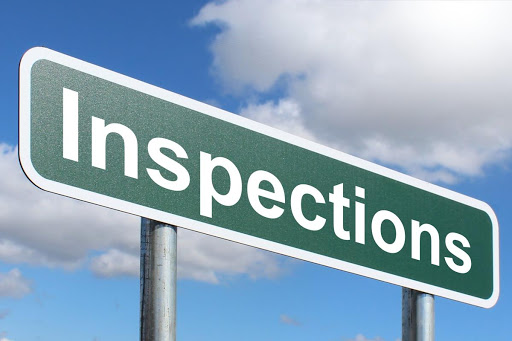Sponsorship Obligations for Sponsors
Sponsorship obligations apply to all sponsors for subclass 457/482 visas. These obligations are in place to ensure that the sponsored overseas workers are economically protected from exploitation or are not disadvantaged in salary payment from local workers (Australian citizen or PR). It is designed also to guarantee that the TSS visa programme is being used to meet genuine skills shortages, and not take advantage of foreign workers in their labour and wages payment and work conditions.
If you are a standard business sponsor or employer and wish to nominate a position and sponsor someone from overseas, once the nomination and its related visa are approved, you will need to meet the sponsorship obligations in the following aspects:
Ensure equivalent terms and conditions of employment
- The terms and conditions of the employment of the sponsored person are less favourable than the terms and conditions you provide, or would provide to an Australian equivalent in the same work place.
- The terms and conditions of the employment of the sponsored person you have sponsored are less favourable than those terms and conditions you had advised you would be providing to the sponsored person at the time of the nomination. For example, you may not reduce the salary for the nominated person which you promised before in the nomination.
Please note: if the annual earnings of the sponsored person are equivalent to or greater than AU$250,000 per annum, this obligation does not apply.
Also if you sponsor someone under a labour agreement, you must pay the amount as specified in the work agreement.
The obligation will start from the day(whichever comes first).
- The employer’s nomination is approved (if the nominee already holds a TSS visa) OR
- The person you are sponsoring is granted a subclass 482 visa
Ensure the nominated employee works only in the approved nominated occupation for the nominated employer
The nominator must ensure that the sponsored employee only works in the occupation or profession which was initially nominated for. They are not allowed to undertake other professions after their nomination has been approved.
In case that the nominated person wishes to work or the nominator wishes them to work in a different occupation, nominator will need to lodge a new nomination for that occupation.
Please be aware that the nominator must employ the person you have sponsored under a written contract of employment. The nominated person cannot work for another business, or you cannot supply them to another business.
The standard business sponsor must not engage in discriminatory recruitment practice
In any of their recruitment process or promotion, the sponsor must make sure that they must not engage in, or have not engaged in, any discretionary practices that may adversely affect Australian citizens, or any other person, based on their visa or citizenship status. This obligation means that when you are recruiting a TSS visa candidate, you do not have biased discrimination on citizenship or visa status. Discriminatory practices also include grounds on sex, gender, race, social group or pregnancy of women etc.
Keep good records of the nominated persons
Sponsors are required to keep records to show their compliance with their sponsorship obligations at all time. All records must be kept in a reproducible format and some must be capable of verification by an independent person or body.
In additional to keeping other employment records for employees under Australian government, state or territory laws, the sponsor should fully exercise their power to have the following records for their nominated persons:
- Written request for payment of travel costs for employees or their family, including then the request was made;
- How and when you paid the travel costs, how much you paid, and who you paid to;
- Notify the Department of Home Affairs of any events, including the date and method of notification and where the notification was provided;
- Tasks performed by the nominated person in relation to the nominated occupation and where these task were performed;
- Earnings or remunerations paid to the sponsored person unless that person earns AU$250,000 or more;
- Any money applied or dealt with in any way on behalf of, or as directed by, the employee;
- Non-monetary benefits offered to the employee. You need to record the agreed value and the time at which , or the period over which, those benefits were provided, unless the visa holder’s salary is AU$250,000 or more;
- If there is an equivalent worker in the same workplace, the terms and conditions of the equivalent worker, inducing the period over which the terms and conditions apply, unless the visa holder’s salary is AU$250,000 or more;
- The written contract of employment you signed with the nominated person. This can be in hard copy or e-copy;
- How you are continuously complying with the training obligations when your standard business sponsorship was approved;
- Any other records you need to keep as party to a work agreement (if applicable);
This obligation starts on the day when the sponsorship is approved or the nominee starts work with you.
This obligation ends two years after: either your sponsorship or the work agreement ends and you no longer employ that nominated person.
Provide records and information
The sponsor must provide records and information if you are requested to do by writing by the Department office. Records and information include those that:
- You are required to keep under Commonwealth, state or territory law;
- You are obliged to keep as a sponsor;
This request can be made at any time after the nomination is approved or the nominee starts working for you, the purpose of which is to determine: (1) if the sponsorship obligations are being or have been complied, and (2) other circumstances in which the Minister might take administrative action exist or have existed.
You must bear all sponsor-related and visa related cost
As a business sponsor, they are required to pay all relevant costs associated with becoming a sponsor, a position nomination, SAF levy, sponsoring a visa holder or their family members and other relevant costs such as migration agent fee. They cannot transfer in any form to the nominated person to recover these costs.
Items of the costs include, but not limited to:
- Cost of becoming a s sponsor;
- Nomination charges;
- SAF levy;
- Migration agent costs associated with sponsorship and nomination applications;
- Recruitment agent fees;
- Migration agent fees;
- Advertising fees;
- Salaries of recruitment or HR staff;
- Outsourcing back ground checks, police clearance;
- Responding to queries from potential candidates and advertising unsuccessful applications;
- Travelling domestically or internationally to interview and/meet applicants;
Pay travel costs
When the sponsored nominee’s visa comes to an end or the sponsor stops sponsoring the nominee and the nominee and his/her family will leave Australia, the nominated sponsor has the obligation to pay reasonable and necessary travel costs.
- Travel from the employee’s usual place of residence in Australia to their departure point from Australia;
- Travel from Australia to the country of their origin (where they hold the passport);
- Economic class air travel or reasonable equivalent;
Normally the nominee will need to submit a written request for travel cost to the sponsored employer or the Department of Home Affairs on behalf of the sponsored employee.
The travel costs must be paid within 30 days of receiving the request.
The nominated sponsor is only obliged to pay once. In case the nominated person had been paid before, but now returns to Australian still holding the visa for which you sponsored them, you do not have to pay their travel costs again.
Pay costs to locate and remove unlawful non-citizens
In the event that your sponsored employee or any other family members become an unlawful non-citizen, the sponsor might have to repay the costs incurred by the Australian Commonwealth (mostly the Australian Border Force (ABF)) in relocating and /removing them from Australia to overseas.
You will be required to pay the difference between the actual costs incurred by the Commonwealth (up to a maximum of AU$10,000), minus the costs you might have already paid under your obligation to the pay the travel costs so that the sponsored people can leave Australia.
It is important to cooperate with inspectors or ABF
By Migration Act 1958 the Immigration officer(s) or inspector(s) have the authority to investigate a business in order to find out whether:
- The sponsorship obligations are being, or have been, complied with;
- You have employed illegal workers;
- Other issue in which the Department could take administrative action;
When the investigation starts, make sure the sponsor must do the following:
- Provide access to your workplace premises, any person in your premises;
- Produce and provide documents within a requested timeframe;
- Comply with any other request made by the officer
The above listed items are the mandatory requirements for the sponsor to follow. Failure to complying with these obligations may result in monitoring your compliance as a sponsor. Serious breach of the obligations may incur a penalty or bar of your standard business sponsorship.



